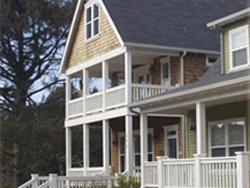Low Pandemic Mortgage Rates Warped the Housing Market
New York, NY, June 28, 2024-"If you locked in a dirt-cheap mortgage when interest rates were low, congratulations for being one of the winners in America’s skewed housing market. Renters, realtors and recruiters are among those getting the raw end of the deal,” reports the Wall Street Journal.
“High interest rates have had an unexpected impact on U.S. housing. Instead of triggering a fall in home prices, as happened with commercial real estate, costlier mortgages have pushed residential values higher. The value of the median existing home rose to a record $419,300 in May, according to the National Association of Realtors. Before the pandemic, it was $270,000.
“Blame the ‘lock-in’ effect of ultracheap mortgages secured when interest rates were low, which are trapping owners in their homes. It is an unforeseen consequence of years of easy money. Two-thirds of outstanding U.S. mortgages have a rate below 4%, according to Morgan Stanley’s housing strategist Jim Egan. Were these homeowners to move, they would have to pay close to 7% for a new 30-year mortgage. The gap hasn’t been as wide since at least the late 1980s.
“Compounding the lock-in effect, most people have fixed-rate mortgages today. More than 90% of newly issued home loans in recent years were 30-year fixed-rate loans, compared with two-thirds in the run-up to the 2008 housing crash.
“As more owners stay put, the number of homes on the market has fallen. Tight supply is pushing prices higher, shrinking the pool of buyers who can afford a home. A household earning $100,000 a year can only afford 37% of home listings today, according to the NAR. In a balanced market where there is around five months’ supply of inventory available the number should be 62%.
“The frozen housing market has economic consequences. Spending linked to home sales has dropped. People normally splurge to fix up houses before putting them on the market or to renovate them after they move in. Work has dried up for professionals handling the logistics of transactions, such as attorneys and real-estate brokers. Together with the construction of new homes, these activities normally account for 3% to 5% of U.S. output, the National Association of Home Builders estimates.
“The flip side is that millions of households that are locked into cheap mortgage rates can afford to spend elsewhere. They are feeling flush thanks to the $119,000 of additional equity the average U.S. mortgage holder has accumulated over the past four years. This may be one reason why consumer spending has been so resilient in the face of higher interest rates, making it harder for the Fed to bring inflation back to its 2% target.
“A less obvious loser is the U.S. labor market. Workers are reluctant to accept job offers in another state if it means sacrificing low housing costs, so labor mobility has taken a hit. One study by economists at the University of California Irvine and UC Berkeley estimates that the lock-in effect discouraged 660,000 moves to a new zip code over the year through June 2023.”
